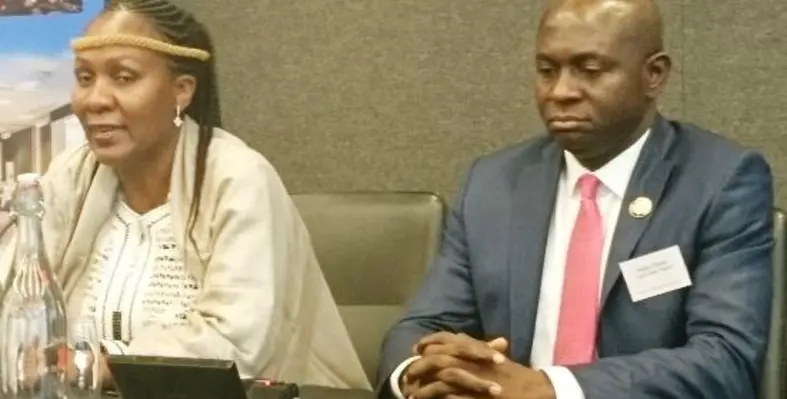Rentia van Tonder, head of power for StandardBankGroup, talks to African Review about the bank’s financial support towards innovative off-grid solutions to meet the future energy needs of Africa
What are your core business areas within Africa’s energy sector?
Given Africa’s power deficit, it is important that African countries look to regional solutions in which energy is generated, sold and consumed – across multiple countries. Importantly, this will involve multiple energy generation technologies. Given the rapid advance of renewables technology, Standard Bank has a clear philosophical as well as a commercial bias towards supporting the development of clean technologies that include private sector expertise and investment applicable for a specific region.
The future is less likely to see the construction of vast nationally-owned generation and distribution networks. Instead, smaller, localised, and even privately-owned off-grid generation, storage and distribution systems are being developed. Some of these are even likely to see the sale of privately generated renewable energy back to the grid through a decentralised model.
What is the project pipeline like right now for the bank across the energy sector? Are there any new projects taking shape at the moment?
There are a number of large-scale projects – especially in hydro-power – underway in Africa. These typically have long lead times and in many cases still require significant investment in transmission lines in order to distribute this power. In the meantime, Standard Bank is developing a pipeline of innovatively funded offgrid solutions, many of these leveraging new technologies and involving the private sector. Kenya provides a good example of how new, small, off-grid technologies can become affordable and easily available to private citizens. These technologies also provide remote rural populations with the energy to enable meaningful economic participation without vast government investment in generation and distribution networks.
In the power sector, are you seeing increased appetite for major electricity project financing, and/or a shift to smaller and renewables projects?
Since large scale power generation projects have such high costs and long lead times, developers are looking at smaller projects as they are usually quicker to get to financial close and are easier to fund through affordable end-user funding structures. Renewable technologies normally offer attractive solutions.
Are new financing services/ products being developed to accommodate the growing interest in smaller scale solar, wind and other renewable schemes?
As a leading commercial bank in Africa, Standard Bank is heavily invested in developing innovative financial solutions for both large as well as smaller renewables-based energy generation and distribution projects. That said, there is a strong trend for commercial banks in African project financing to find solutions to shorten the tenors. Instead funders and financial institutions are increasingly working closely with development finance institutions (DFIs) to manage and reduce the risks traditionally associated with long tenors. Part of this trend is also a strong focus on funding solutions that involve private capital in new, smaller, renewable-based projects.
Future trends: Are there any essential developments to watch for in the coming year or so across Africa’s energy sector?
There is currently a trend in Africa for banks to work more closely with development finance institutions (DFIs) to develop regionally-integrated generation, transmission and distribution networks across multiple jurisdictions. This trend involves developing the infrastructure and legal, administrative and funding frameworks supporting interconnectivity between countries, entities, government and private and even individual energy producers in Africa. In Nigeria, for example, a lot of energy is produced via private diesel generation, off-grid. Combining this with renewables, for example in captive solardiesel off-grid combinations –and then looking at ways for this off-grid generation to be made available to national and even regional grids – is also likely to become an area of development and growth in future.
Africa is most likely to evolve a regional, multinational hybrid of on- and off-grid public and private energy generation solutions based on multiple and increasingly renewable sources. These sources will variously reflect a mix of Africa’s abundant solar, hydro, wind and carbonbased energy sources in combinations determined by rapidly evolving new technologies and the increasing involvement of private funding, ownership and operation. If regional integration is blended with renewables and off-grid, the flexibility that results means that banks stand a much better chance of being able to help utilities better manage long-term sustainability.














